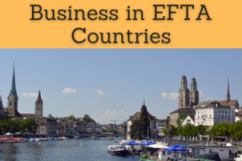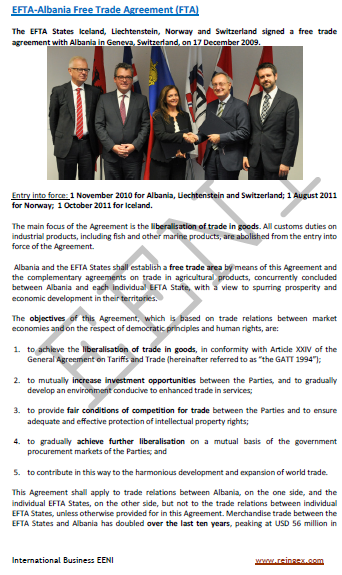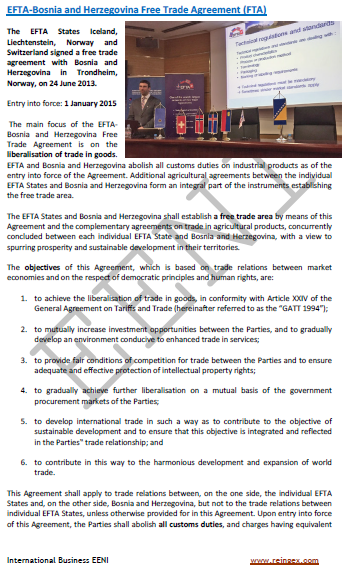Business in Liechtenstein, Vaduz. Tax haven
Liechtensteinian Foreign Trade: a tax haven in Europe, Logistics

The Principality of Liechtenstein is considered as a tax haven, despite being part of the European Economic Area
Main Liechtensteinian economic sectors are tourism and financial services
- Introduction to Principality of Liechtenstein (Central Europe)
- Liechtensteinian Economy
- Doing Business in Vaduz
- Liechtensteinian Foreign Trade
- Transport and Logistics
- Investment in Liechtenstein
- Access to the Liechtensteinian Market
- Business Plan for Liechtenstein
Sample:

The educational aims of the Subject “Foreign Trade, Logistics and Business in Liechtenstein” are:
- To analyze the Liechtensteinian Economy, Logistics and Global Trade
- To conduct research on business opportunities in the Liechtensteinian Market
- To research the trade relations of Liechtenstein with the student's country
- To learn about Liechtensteinian Trade Agreements
- To develop a business plan for the Liechtensteinian Market

The Subject “Foreign Trade, Logistics and Business in Liechtenstein” is included within the curriculum of the following academic programs at EENI Global Business School:

Masters: International Business, Foreign Trade.

Languages:  +
+  Liechtenstein
Liechtenstein  Liechtenstein
Liechtenstein  Liechtenstein.
Liechtenstein.
 Masters adapted to Liechtensteiner students.
Masters adapted to Liechtensteiner students.
- Subject Credits “Doing Business in Liechtenstein”: 1

International Trade, Logistics and Business in Liechtenstein

Liechtensteinian Preferential Access and Trade Agreements:
- Liechtenstein and the European Economic Area
- European Free Trade Association (EFTA)
- Liechtenstein as a member of EFTA has trade agreements with Chile, Serbia, Ukraine, SACU, Tunisia, Bosnia and Herzegovina, Canada, Turkey, Morocco, the Philippines, the CCG, Central America etc
- UK-Switzerland-Liechtenstein Trade Agreement

- World Trade Organization (WTO)
- Agreement on Trade in Services (GATS)
- Agreement on Sanitary Measures
- Agreement on Technical Barriers to Trade
- Agreement on Preshipment Inspection
- Agreement on Safeguards
- Trade Facilitation Agreement
- International Chamber of Commerce
- COTIF Convention
- BIC (Containers)
- CIM & CIT Rules (Rail Transport)
- Is not a member of the
- World Customs Organization (WCO)
- Chicago Convention (ICAO)
- International Maritime Organization (IMO)
European Organizations:
- European Investment Bank
- Economic Commission for Europe (UNECE)
- Organization for Security and Cooperation in Europe (OSCE)

- United Nations
- World Bank
- World Trade Organization (WTO)
- IMF (Not-Member)
The Principality of Liechtenstein (Europe).
- Liechtensteinian Capital: Vaduz
- Liechtensteinian Official Language: German
- Area of Liechtenstein: 160 km²
- Liechtensteinian Population: 36,925 people
- Type of Government: Constitutional Monarchy
- Borders of Liechtenstein: Austria and Switzerland
Religion in Liechtenstein: Catholicism (Christianity).
Liechtenstein belongs to the European Economic Area.
Liechtensteinian Economy.
- It is estimated that more than 73,000 enterprises are registered in Liechtenstein, this represents 30% of the principal's income
- Currency of Liechtenstein: Swiss Franc
- Approximately 32% of the principal's income is invested in research and development

Liechtensteinian Foreign Trade.
- Main Liechtensteinian Exports are small machinery, dental products, seals, fittings, ceramics
- Main Liechtensteinian Imports are agricultural products, raw materials, machinery, metal products, textiles, food products, vehicles
- Top Liechtensteinian Trading Partners: Switzerland, Austria and Germany
Sample:
(c) EENI Global Business School (1995-2025)
Top of this page









 WhatsApp
WhatsApp